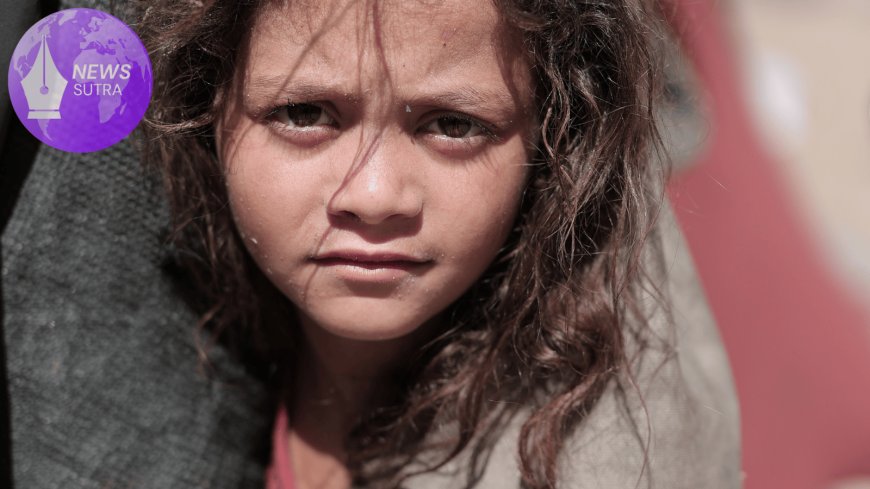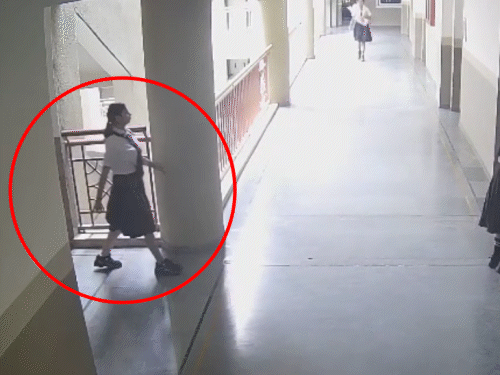Gaza’s Last Functioning Hospital Nears Collapse as Staff and Patients Go Hungry
Nasser Medical Complex, the last functioning hospital in southern Gaza, faces collapse as staff and patients go hungry. An American nurse reveals the dire conditions inside.

Southern Gaza Strip – The humanitarian crisis in Gaza has reached an alarming new stage as the Nasser Medical Complex, the last major hospital still partially functioning in southern Gaza, teeters on the brink of collapse. Reports from medical staff reveal a devastating situation inside the facility: dwindling food, exhausted doctors, and desperate patients left without proper care.
One American nurse working at the hospital described the atmosphere as “a slow-motion disaster,” with healthcare workers skipping meals to give what little food remains to patients. The facility, once a lifeline for thousands in Khan Younis and surrounding areas, is now operating with almost no supplies and an overstretched, malnourished staff.
A Hospital on the Edge
The Nasser Medical Complex has long served as one of southern Gaza’s most vital health centers. But after months of conflict, blockades, and supply shortages, it has become a shell of its former self. Electricity is intermittent, life-saving machines often fall silent, and food deliveries have nearly stopped.
Patients with severe injuries and chronic illnesses are the most affected. Families crowd the corridors, pleading for medicine that no longer exists in the pharmacy. Children lie on makeshift beds with little more than gauze and saline to sustain them.
Doctors describe performing surgeries without anesthesia, sterilization, or adequate equipment. “We are no longer practicing modern medicine,” one physician explained. “We are trying to keep people alive with almost nothing.”
Voices from Inside: An American Nurse Speaks Out
Among those bearing witness is an American nurse volunteering at the hospital, who spoke to reporters under conditions of anonymity due to safety concerns. She described watching colleagues grow weaker each day, as many have not received proper meals in weeks.
“We share small portions of rice or bread when it arrives,” she said. “Most days, the staff eats less than the patients because we prioritize them. But now, even the patients are starving.”
The nurse explained that malnutrition is spreading among staff and patients alike, weakening immune systems and worsening outcomes for those needing urgent care. “People don’t just die from injuries here anymore—they die from hunger, infections, and exhaustion,” she added.
Humanitarian Agencies Sound the Alarm
International aid groups have repeatedly called for unrestricted humanitarian access to Gaza, warning that the collapse of its last operational hospital would leave the entire southern region without critical medical support.
According to Médecins Sans Frontières (Doctors Without Borders), Gaza’s medical system is “in total collapse,” with over 80 percent of hospitals already non-functional. The World Health Organization (WHO) has echoed these concerns, stating that the few remaining medical centers are operating at a fraction of their capacity, unable to meet the overwhelming needs of the population.
The situation at Nasser is particularly dire because it was one of the last facilities with surgical capacity in the south. Its closure could mean countless preventable deaths.
For context on international health standards during armed conflicts, the World Health Organization provides updates on emergency medical operations in crisis zones.
Food Shortages Compound the Emergency
What sets the Nasser crisis apart is not only the lack of medical supplies but also the absence of food. Hospitals are supposed to be sanctuaries for healing, yet here patients are growing weaker due to hunger.
The nurse recounted how patients’ families often bring scraps of food, only to share them among several people. In pediatric wards, malnourished children face infections they cannot fight off. Adults recovering from surgery risk collapse because they have no nourishment.
Aid groups say Gaza’s food insecurity is at catastrophic levels. The United Nations Relief and Works Agency (UNRWA) has reported that over 90 percent of Gaza’s population faces food shortages, making hospitals yet another place where hunger adds to suffering.
For a deeper look at humanitarian assessments, Middle East Monitor has been documenting the ongoing crisis and its impact on civilians.
Global Political Reactions
The collapse of Gaza’s healthcare system has sparked renewed debates in international political circles. Some governments have urged immediate ceasefires to allow humanitarian aid corridors, while others remain hesitant, citing security concerns.
The International Court of Justice (ICJ) has also been under scrutiny after rights groups demanded stronger accountability measures. Advocates insist that the denial of food and medical supplies violates international humanitarian law, particularly under the Geneva Conventions.
Meanwhile, calls from U.S. lawmakers and European leaders for increased humanitarian support continue to grow. Yet on the ground, little has changed, leaving Nasser’s staff to struggle daily against impossible odds.
The Emotional Toll on Medical Staff
Beyond the physical hardships, the emotional strain on healthcare workers has become unbearable. Many staff members have lost family in the conflict but continue to work long shifts under grueling conditions.
One Palestinian doctor explained: “We cannot leave. If we leave, people die. But every day we stay, we wonder if we are next.”
The American nurse confirmed that morale has reached a breaking point. “Some doctors cry after surgeries, knowing they couldn’t save a child because the right medicine wasn’t available. This is not how medicine should be practiced anywhere in the world.”
International Calls for Action
Humanitarian groups argue that time is running out. They emphasize three urgent priorities:
-
Immediate delivery of food and water to medical facilities.
-
Safe humanitarian corridors for medical staff and patients.
-
International monitoring to ensure compliance with humanitarian law.
Analysts warn that if Nasser collapses, it will not only deepen the health crisis but also symbolize the total breakdown of Gaza’s civilian infrastructure.
A Symbol of Gaza’s Struggle
The plight of Nasser Medical Complex has become symbolic of Gaza’s larger humanitarian struggle. Once a bustling hospital, it now reflects the reality of a population caught between conflict and survival.
International media outlets have highlighted its deteriorating conditions as evidence of the urgent need for humanitarian intervention. The crisis has also sparked debates about global responsibility and the limits of humanitarian aid in war zones.
Looking Ahead
Unless urgent aid reaches Nasser within days, medical experts warn that it may be forced to shut down completely. For the thousands who depend on it, that could mean a death sentence.
As the American nurse put it: “If the world does not act now, history will remember this as a preventable tragedy.”
What's Your Reaction?
 Like
0
Like
0
 Dislike
0
Dislike
0
 Love
0
Love
0
 Funny
0
Funny
0
 Angry
0
Angry
0
 Sad
0
Sad
0
 Wow
0
Wow
0






































































